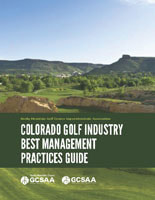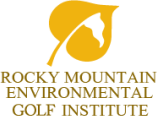Memorial Tournament Sponsorship Opportunity
Be a Sponsor at the 2024 Memorial Tournament!
Support both the industry and your company by having signage at either the Greenside/Teeside Area or Clubhouse/Scoring Area.
To register to be a sponsor for this event, click here.
Want to learn about other sponsorship opportunities? You can visit our 2024 Partnership Opportunities page.
If you have any questions or need assistance, please contact the office at 303-255-9611 or info@rmgcsa.org.
Support both the industry and your company by having signage at either the Greenside/Teeside Area or Clubhouse/Scoring Area.
To register to be a sponsor for this event, click here.
Want to learn about other sponsorship opportunities? You can visit our 2024 Partnership Opportunities page.
If you have any questions or need assistance, please contact the office at 303-255-9611 or info@rmgcsa.org.
Rocky Mountain Environmental Golf Institute Press Release 2023 Research Funding
|
Preventative Control of Japanese Beetle White Grubs
Adam Van Dyke, M.S., Professional Turfgrass Solutions LLC Author email: adam@proturfgrasssolutions.com Objective 1. Evaluate preventative applications of Acelepryn and Ference for Japanese beetle white grub control.
Read the full report here.
Read the full report here.
Colorado Environmental Assessment and Economic Impact Study

RMGCSA RELEASES COLORADO GOLF BEST MANAGEMENT PRACTICES GUIDE
This guide promotes environmental stewardship, golf course playability, and the overall health of the Colorado golf industry through comprehensive BMPs covering 12 key areas.
Click here to view and download the Guide.
View the Press Release
This guide promotes environmental stewardship, golf course playability, and the overall health of the Colorado golf industry through comprehensive BMPs covering 12 key areas.
Click here to view and download the Guide.
View the Press Release
Slow/Controlled-Release Fertilizer Applications and Nitrous Oxide Emissions from
Fairways and Roughs
Benefit of slow/controlled release fertilizers:
The use of slow or controlled-release fertilizers has become very valuable and common practice in maintaining golf course turfgrass. The applications of these types of fertilizers have provided several benefits. First, slow-release fertilizers are a great resource towards suppling adequate amounts of fertilizer without requiring frequent fertilizer applications. With a need for fewer applications, superintendents save time and fuel while freeing crews for other projects. In addition, controlled-release, consistent N delivery reduces the risk of turfgrass foliar burn and helps turfgrass take up more nutrients while reducing the amount lost to the environment through leaching, denitrification, runoff, or volatilization. The long-term benefits of these types of fertilizers are appreciated.
Read the full report here.
The use of slow or controlled-release fertilizers has become very valuable and common practice in maintaining golf course turfgrass. The applications of these types of fertilizers have provided several benefits. First, slow-release fertilizers are a great resource towards suppling adequate amounts of fertilizer without requiring frequent fertilizer applications. With a need for fewer applications, superintendents save time and fuel while freeing crews for other projects. In addition, controlled-release, consistent N delivery reduces the risk of turfgrass foliar burn and helps turfgrass take up more nutrients while reducing the amount lost to the environment through leaching, denitrification, runoff, or volatilization. The long-term benefits of these types of fertilizers are appreciated.
Read the full report here.
Surfactants for water conservation and their impact on soil health
Soil surfactants have been used in regular turfgrass maintenance programs to increase irrigation efficiency, because their use has been shown to increase uniformity and improve the moisture retention in the root zones (Alvarez et al., 2016; Kostka and Bially, 2005; Leinauer et al., 2001; Leinauer et al., 2010; Leinauer and Devitt, 2013; Mitra et al., 2005). Due to their ability to weaken the surface tension, wetting agents permit the penetration of water not only into repellent rootzone areas but also into the meso and micropores of soils. Thus, in addition to offering remediation of LDS and hydrophobic soil conditions, soil surfactants may also help to reduce irrigation requirements by improving water use efficiency. Several studies have documented improved turfgrass performance under drought or decreased irrigation when soil surfactants were applied (Alvarez et al., 2017; Cisar et al., 2000; Kostka, 2005; Kostka et al., 2007). Currently, 94% of golf courses in the United States have incorporated soil surfactants into their regular maintenance protocols (Gelernter et al., 2015).
Read the full report here.
Read the full report here.
Selection of Water Saving Kentucky Bluegrass and Tall Fescue for Colorado Turfgrass Industry & Relationships of Soil Analysis, Turf Quality, and Shoot Analysis of Kentucky Bluegrass Under Effluent Water Irrigation on Golf Courses
Dr. Yaling Qian, Associate Professor, Department of Horticulture and Landscape Architecture
Colorado State University, September 2019
Project 1: This on-going RMEGI supported research began in 2017 to compare turfgrass quality and growth of 15 different Kentucky bluegrass entries, 19 tall fescue entries and 1 perennial ryegrass line under different irrigation treatments to determine relative drought resistance of the different entries and document the water quantity needed for each entry to maintain acceptable and desirable turf quality.
Project 2: Research was conducted on eight golf courses in the semiarid Front Range of Colorado to determine the effects, if any, of watering with effluent water on turfgrass and the degree of accumulation of different minerals or salts in turfgrass shoots when effluent water is used for irrigation. Three courses have used effluent water irrigation for 10 years, three courses for 18-26 years and two courses have used effluent water irrigation for 15 and 18 years. Turf quality of Kentucky bluegrass was evaluated on 25 roughs from the above-mentioned golf courses and analyzed for a variety of mineral concentrations.
Read reports of both studies here.
Project 2: Research was conducted on eight golf courses in the semiarid Front Range of Colorado to determine the effects, if any, of watering with effluent water on turfgrass and the degree of accumulation of different minerals or salts in turfgrass shoots when effluent water is used for irrigation. Three courses have used effluent water irrigation for 10 years, three courses for 18-26 years and two courses have used effluent water irrigation for 15 and 18 years. Turf quality of Kentucky bluegrass was evaluated on 25 roughs from the above-mentioned golf courses and analyzed for a variety of mineral concentrations.
Read reports of both studies here.
Efficacy and Safety of Proxy-rate Programs in Winter for Annual Bluegrass Seedhead Management
Adam Van Dyke, M.S., CPAg, Professional Turfgrass Solutions LLC
This RMEGI supported research was conducted from November 2017 until May 2018 on a 70:30 annual
bluegrass: creeping bentgrass putting green at Murphy Creek Golf Course in Aurora, Colorado. Proxy® (Bayer)
was applied at two winter timings, and at different rates, to evaluate the effectiveness of making early
applications compared to just making traditional spring applications for controlling seedheads of annual
bluegrass. Proxy was applied at a pre-snow timing (before snow cover) on November 20, 2017 and at a postsnow
timing (after snow melt) on March 8, 2018.
Read the full report here
bluegrass: creeping bentgrass putting green at Murphy Creek Golf Course in Aurora, Colorado. Proxy® (Bayer)
was applied at two winter timings, and at different rates, to evaluate the effectiveness of making early
applications compared to just making traditional spring applications for controlling seedheads of annual
bluegrass. Proxy was applied at a pre-snow timing (before snow cover) on November 20, 2017 and at a postsnow
timing (after snow melt) on March 8, 2018.
Read the full report here
Apply today for the RMEGI Memorial Scholarship!
REMGI Scholarship Program was developed to recognize outstanding students at any accredited institute of higher learning who are planning careers in turf grass management or turf grass science. An annual award of $2,000 will be funded by the RMEGI and administered by the RMEGI Board of Trustees
CLICK HERE to download the application today!
_________________________________________________________________________________________________________________________________________
CLICK HERE to download the application today!
_________________________________________________________________________________________________________________________________________

